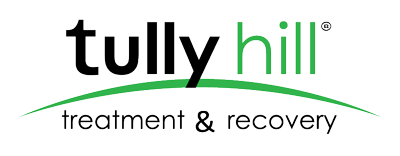Someone – who isn’t exactly known – once said, “You can’t pour from an empty cup. Take care of yourself first.”
I love this quote, because it so comprehensively sums up what is absolutely essential for anyone recovering from addiction and who hopes to continue recovering, one day at a time. Now, more than ever it is important for those living in recovery to remember to exercise self-care. The widespread unrest caused by the covid-19 pandemic has had rippling effects throughout our community. Experiencing these external stressors that are beyond our control only magnifies our need to control those aspects of our lives that we still can.
Self-care encompasses several components. Returning to the quote above, we know that restoration of one’s physical, emotional, and spiritual condition refills the cup that an addiction almost always empties. Achieving this goal is vital to recovery and sustaining it through thick and thin.
Because addiction is a chronic illness, self-care becomes a primary form of care for those recovering from addiction. Successful self-care is almost always a learned discipline that consists of purpose and consistency for those in recovery.
Examples of healthy self-care include avoiding tobacco which improves overall health and quality of life, and reduces the risk of disease and premature death. Undertaking regular physical activity increases the chance of living longer: it helps control weight to a desired level, strengthens bones and muscles, and improves mental health and the ability to participate in activities (who hasn’t felt better after walking, swimming, bike-riding, or dancing?). Likewise, the limitation of certain fats in one’s diet (saturated and trans fats) and sugars and sodium can contribute mightily to improved health.
Other important self-care maintenance includes establishing and maintaining a regular, adequate sleep pattern, resulting in getting an average of eight hours of sleep each night. It’s a fact that sleep deprivation increases the risk of kidney and heart disease, high blood pressure, diabetes, and obesity. It is also common for those suffering from addiction to have had very poor oral hygiene, and need to start and keep a regular regimen of proper oral care.
Following through with addiction treatment aftercare plans is important for maintaining emotional health and well-being. Strong social support systems that include family, friends, and 12-Step support groups provide positive influence for those in recovery and play a leading role in successful addiction treatment outcomes and the endurance of one’s sobriety. These systems also provide help in overcoming common factors that can act as barriers to self-care, such as health care illiteracy, financial constraints, and access to care.
Anyone in recovery will benefit greatly if they can initiate these and other healthy habits and remain faithful to them throughout their recoveries. They will find their well-beings improved, their physical health extended and enriched, and their emotional stability enhanced. Despite the disruptions to daily routines because of the Covid-19 pandemic, it is important to take care of one’s mental, physical, and emotional health.
If you or someone you know is suffering from addiction and considering seeking professional help, do not hesitate to reach out to us at any time. Our experienced team of professionals will be happy to answer all of your questions about treatment, insurance, and admissions. Call us at 315-696-6114, live chat us from any page on our website, or fill out an online referral form and we will get back to you as soon as possible.







